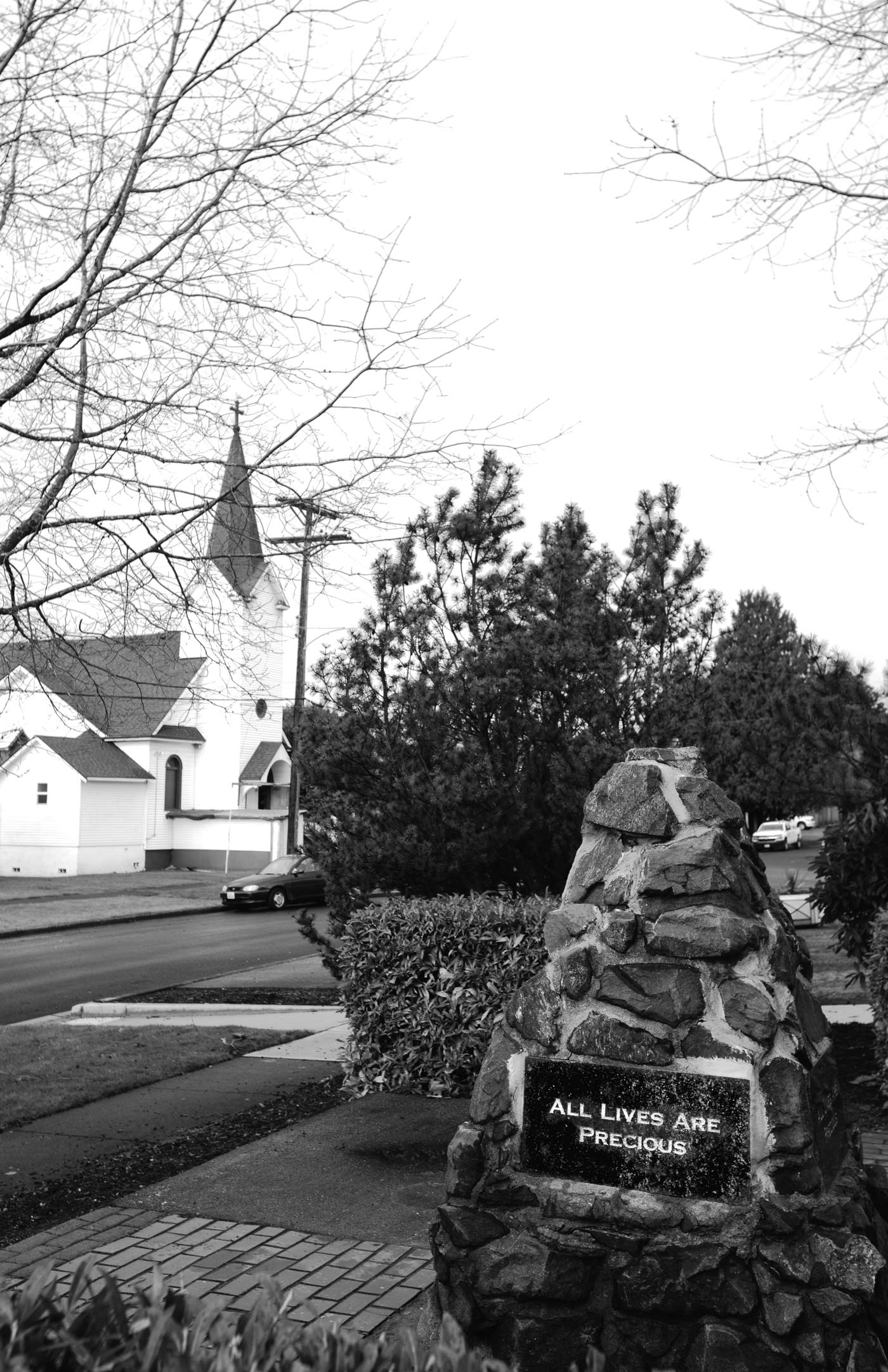The Human Becoming: A Lenten Devotionalনমুনা


Fourth Week of Lent | Blind | Rev. John Stroeh
This is a story about a man who is blind, given physical sight by Jesus. But it’s more than that. It’s a story about a lot of other people who think they can see but are blind.
When we read this story in worship at Peace Lutheran Church, the congregation sometimes reads different parts: we are the disciples, the man’s neighbors, his parents, and the Pharisees. As we put ourselves in the shoes of each of these, we begin to see they all have something in common: spiritual blindness.
It’s Lent—a season of reflection and repentance; a time to examine ourselves, admit our mistakes and grow closer to God. How do we suffer from spiritual blindness?
- Like the disciples, how are we blinded by a need to blame others or by an inability to see God at work in suffering?
- Like the man’s neighbors, how are we blinded by a need for everything to make sense, or by an inability to see God working mysteriously and beyond explanation?
- Like the man’s parents, how are we blinded by fear or by an unwillingness to speak up and do what’s right?
- Like the Pharisees, how are we blinded by a need to control others and be morally superior, or by an inability to see God working in ways we’ve never experienced before?
Spiritual blindness is a common disease. Sometimes we’re truly blind; our eyes are closed to God and God’s way. But often we’ve got an illness that may be worse—we think we can see, but we’re not seeing clearly. Jesus says to the Pharisees, “If you were blind, you would not have sin [you’d have a good excuse]. But now that you say, ‘We see,’ your sin remains.”
“All lives are precious.” Those are the words etched in the rock memorial at S. 23rd and Alaska streets, just blocks from Peace Lutheran Church in Tacoma’s Hilltop neighborhood. The memorial is part of walking tours we’ve been taking since it was erected in 1993. Neighborhood leader Larry Norman, a member of Peace, helped spearhead the project at a difficult time in Hilltop history when the neighborhood was riddled with violence, homicides, drug traffic, and gang activity. People were caught up in a web of drugs and violence that was killing themselves and others. Neighbors were being robbed of their sense of security and community.
Larry and 30 others—including gang members, churchgoers, and children—cleared the space and built the small monument to lift all the lives that were lost. There were no names listed, just the words, “All lives are precious.” It was a way of getting people’s attention and calling people back to a core truth in the community. But it was controversial. All lives? Including the addicts, the gang members, the shooters? Yes, all lives are precious. These are not “evil” people; all of us are part of the problem and the solution. It takes a certain spiritual vision to see that.
We’ve all got eye problems. We’re short-sighted; we wear blinders; we have “log vision” (see Matthew 7:4). Lent can be a time for us to get real and acknowledge that before God. But praise God! Jesus is the divine Optometrist! Over time he can heal our spiritual blindness by opening our eyes of faith to God’s values, God’s deep love for us and all God’s people, and God’s calling to compassion and justice.
Reflection
Is there a word or phrase that stands out to you? What is it calling forth?
Discussion
How are you experiencing spiritual blindness? In what ways is Jesus opening your eyes and helping you see?
Public Action
Try this exercise: for a whole morning or a whole afternoon, put on “Jesus glasses” and ask God to help you see yourself, other people, situations, and things through the eyes of Jesus. Take a walk around the block, in your neighborhood, or the city. Reflect on the experience and how God is helping you see things differently.
Scripture
About this Plan

The Lenten journey is a counterintuitive journey to life by way of the cross. Each year at this time we are invited to turn and face those things from which we would rather run and hide. We walk to the cross where we experience the great unveiling and see things as they really are. We see God for who God is, and we discover ourselves for who we are.
More
Related Plans

Gifts and Gratitudes - a 5-Day Reading Plan

In Her Image: Character Study of the Proverbs 31 Woman

The Finish Strong: Transition Through Seasons Seamlessly

Authentic Manhood

The Christian Mom in Business Guidebook Devotional

R.I.P or Rest in Peace With God Daily

Christianity in a Nutshell

Building a Life That Matters for Good - the Quest for Significance

Encountering the Lamb of God
